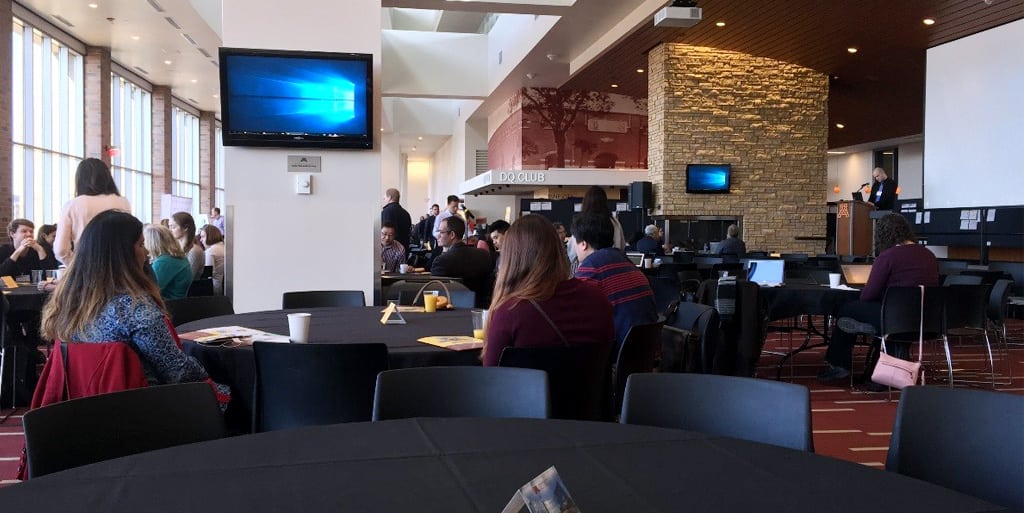The Masonic Cancer Center 8th Annual Cancer Research Symposium
Bio-Techne was pleased to sponsor the 8th Annual Cancer Research Symposium, hosted by the Masonic Cancer Center at the University of Minnesota. This one-day conference featured exciting talks by luminaries in the cancer research field. Students and post-doctoral fellows presented the latest in their cancer research.
The keynote lecture "CAR T Cells for Cancer: The Next Generation" was given by Dr. Crystal Mackall, Professor of Pediatrics and Internal Medicine and Director of the Stanford Center for Cell Therapy. After a brief discussion of the basics of CAR T technology, the successes and shortcomings of CD19-targeted CARs, she transitioned into her laboratory's research which focused on CD22-targeted CAR Therapy in B-cell acute lymphoblastic leukemia. She discussed important concepts that investigators need to bear in mind when designing CAR's such as cancer immunogenicity, antigen density, cancer heterogeneity. She also discussed a novel in vitro T Cell exhaustion model system that was developed in her laboratory. Data generated using this model system implicated c-jun but not c-fos activity at AP-1 binding sites in IL-2 production and T cell exhaustion. Finally, she discussed research examining destabilization domains as a mechanism of regulating CAR expression. This research represents an important step towards developing a "safety switch" that can be used to prevent unwanted tonic downstream signaling responses to CAR activation.
The afternoon lecture featured Dr. Clark C. Chen, the Lyle French Chair in Neurosurgery at the University of Minnesota. Dr. Chen recently moved to the University of Minnesota from the University of California San Diego. He discussed his clinical research that focused on glioblastoma. In collaboration with Tocagen, Dr Chen demonstrated that he was able to selectively target gliomas using the Toca 511 retroviral replicating vector which selectively infects cancer cells, causing them to produce cytosine deaminase. Cancer patients subsequently receive oral 5-fluorocysteine (5-FC) which is converted to the anti-cancer drug fluorouracil (5-FU) which kills infected cancer cells and neighboring cancer and immuno-suppressive cells. These responses are thought to contribute to the induction of an immune response to cancer. Taken together, Dr. Chen's research represents a potential breakthrough for the treatment of gliblastoma.
Learn about R&D Systems tools for Cell Therapy Research
CAR T Cell Therapy Poster: Refining the Approach in Solid Tumors
